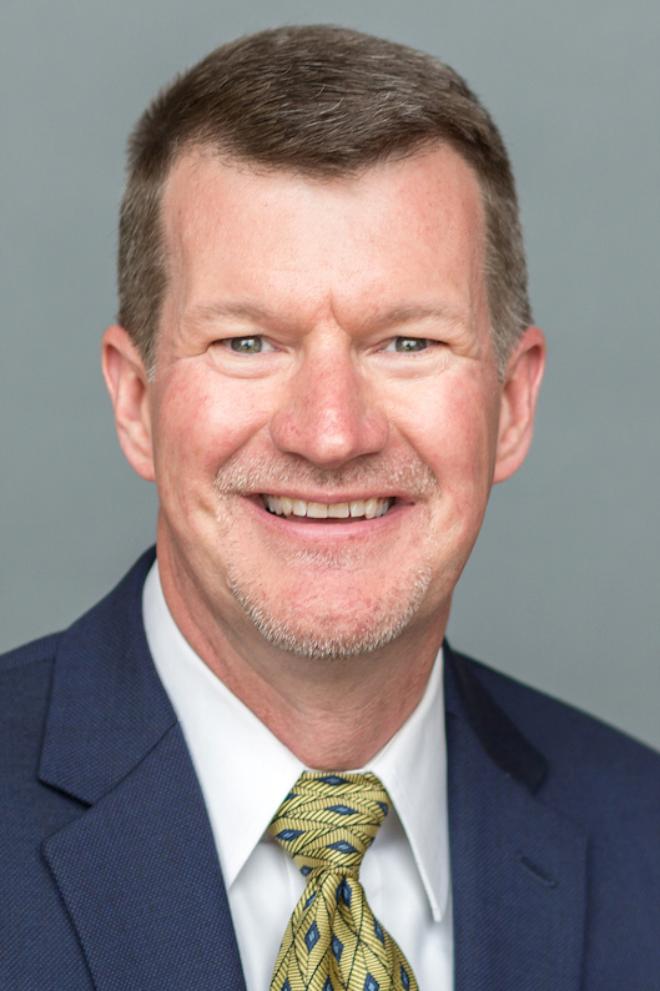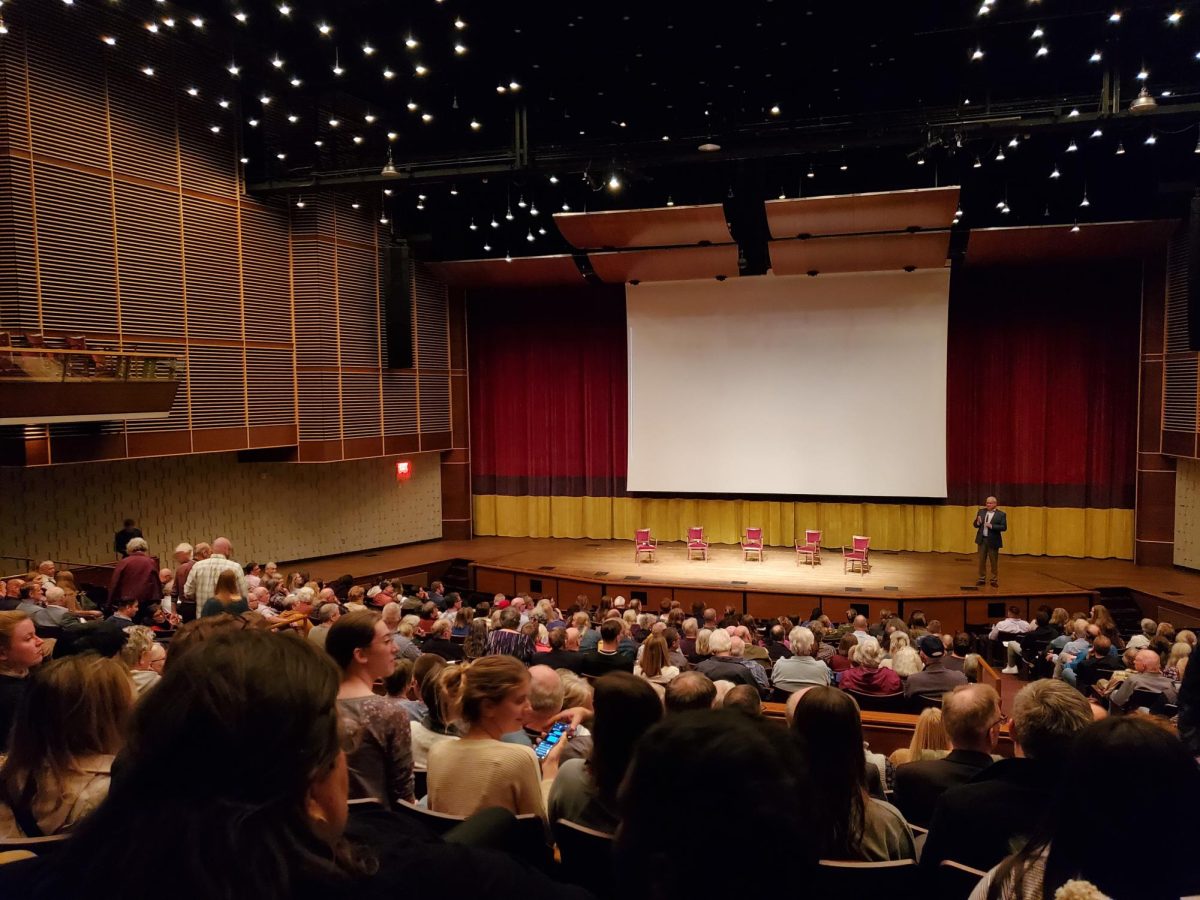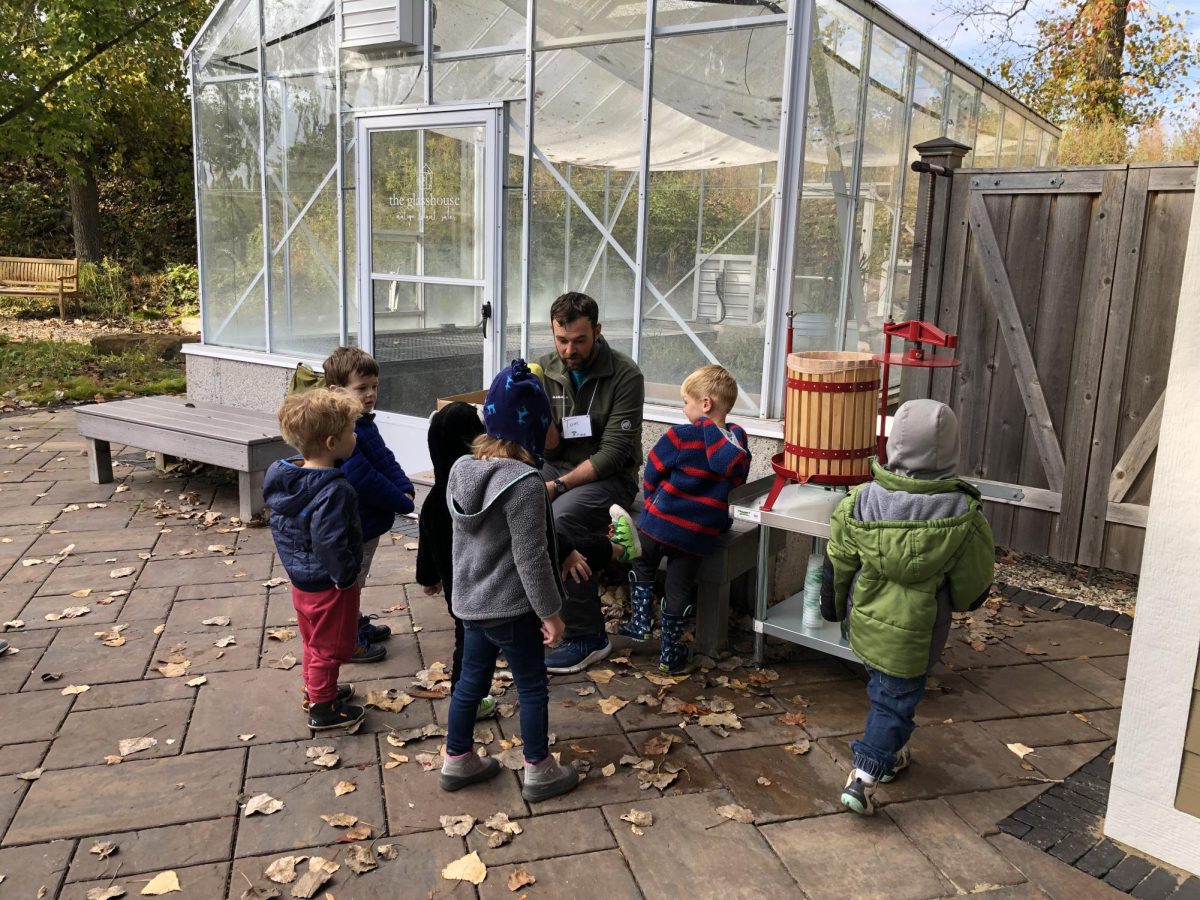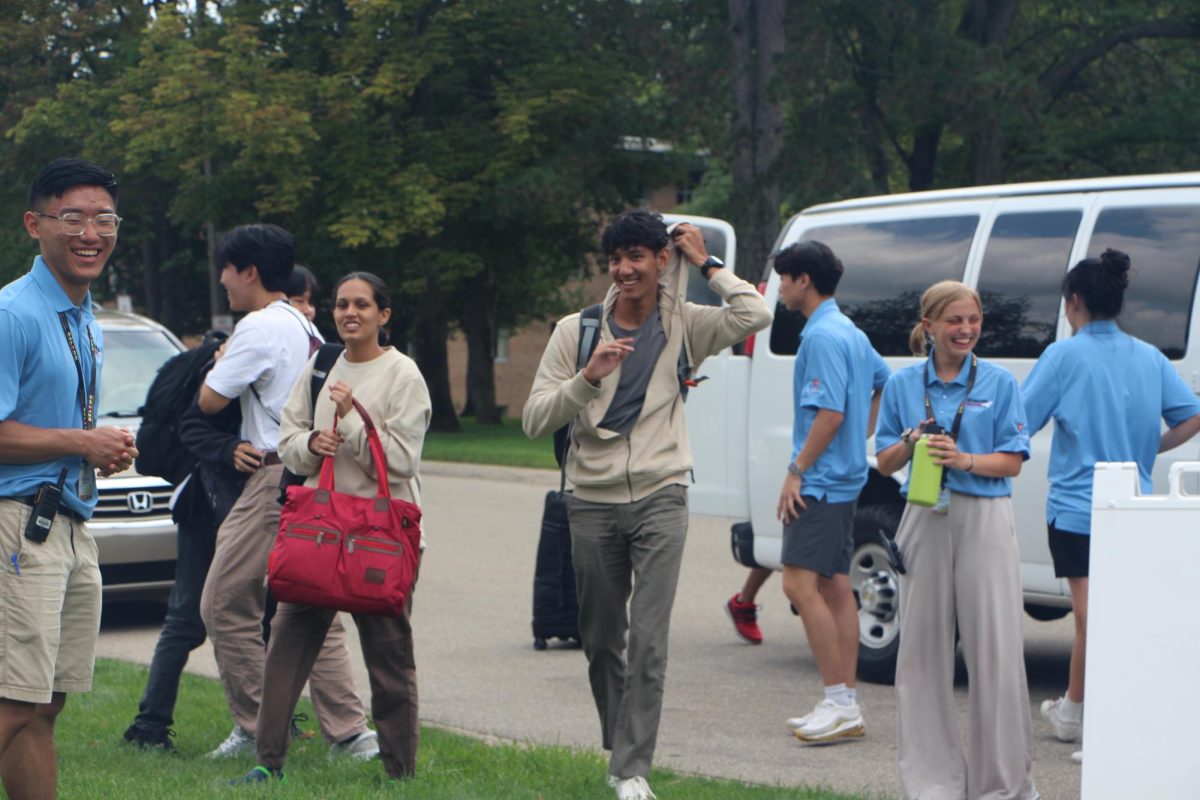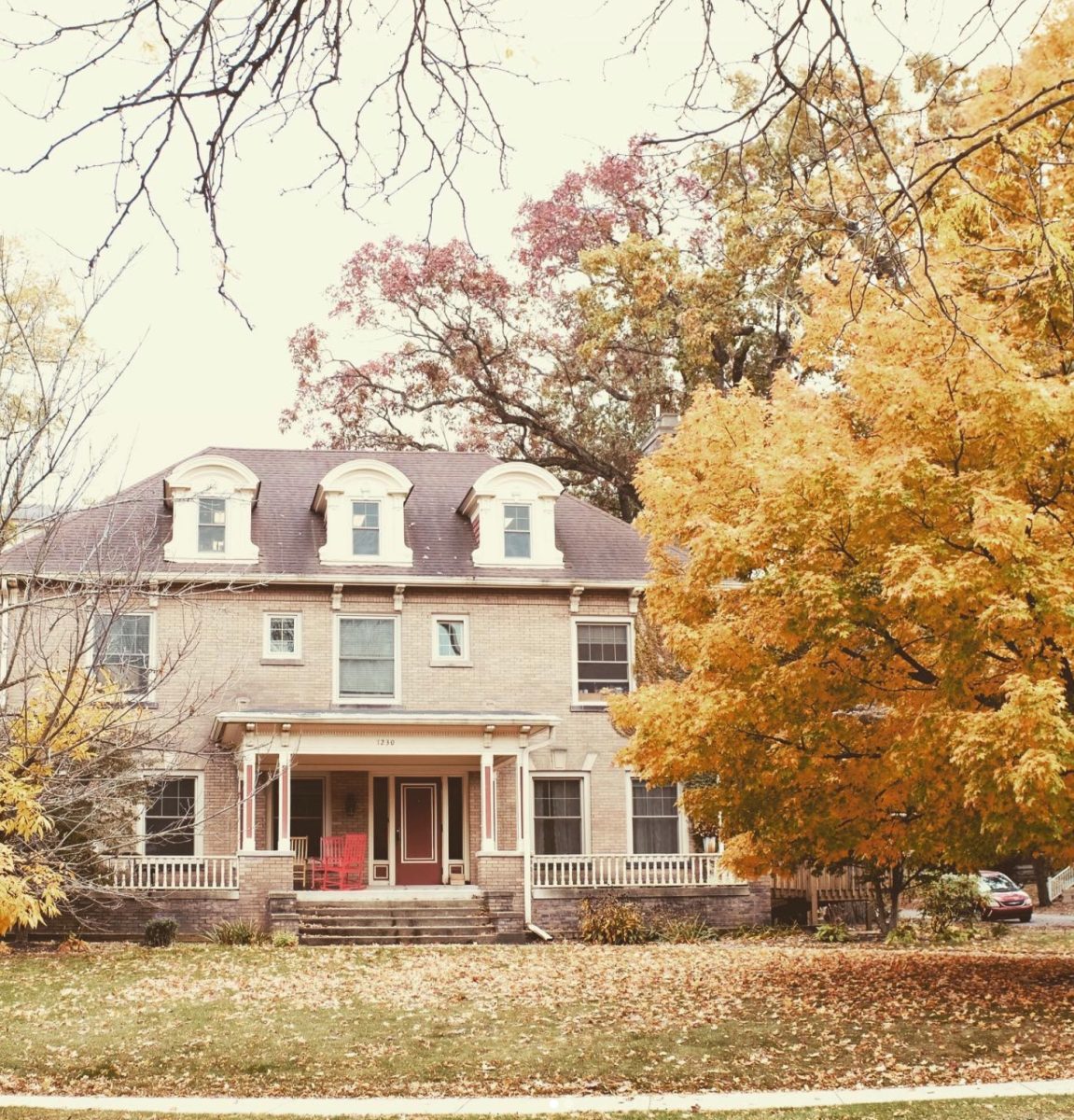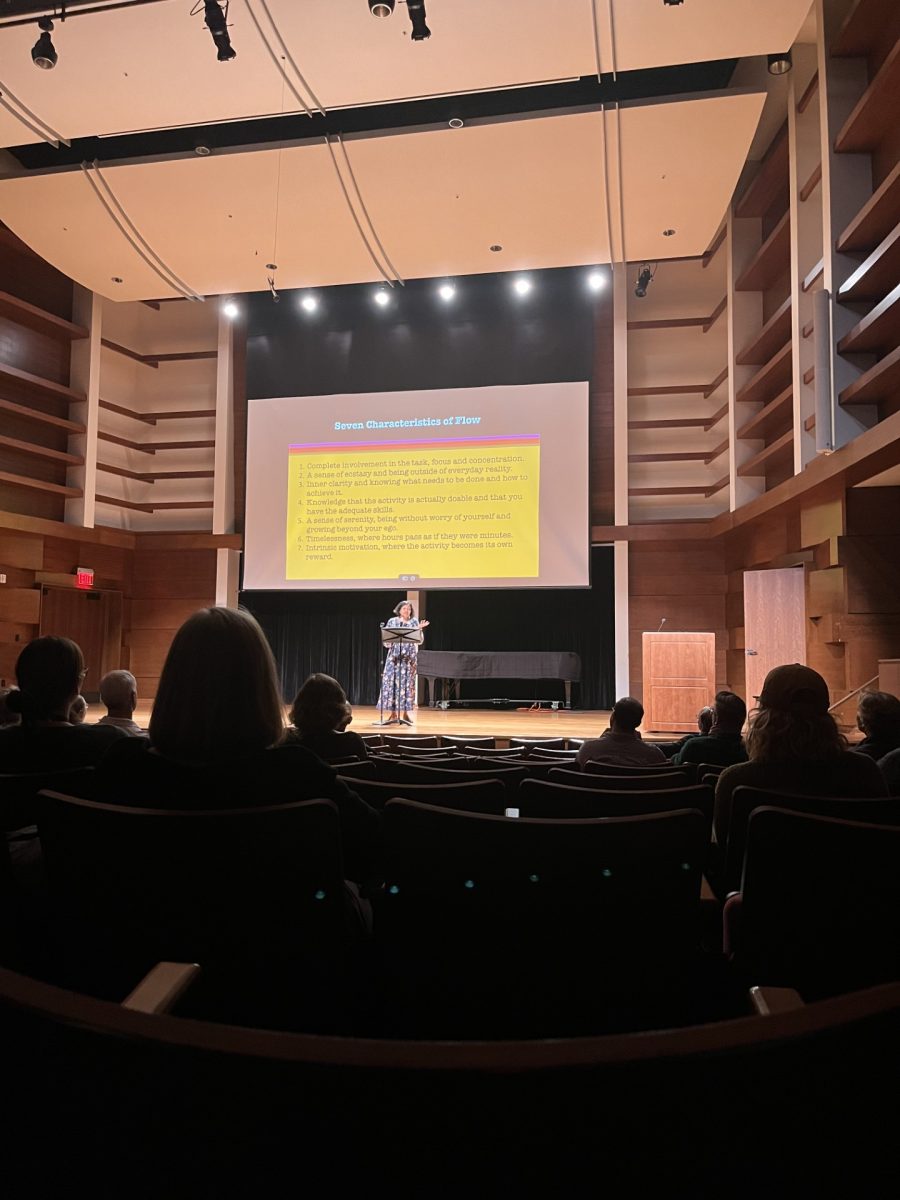Refugees face persecution simply because of who they are or what they believe. In order to save their lives, they have had to flee their home country, leaving everything they know behind.
The countries to which refugees escape are not always able or willing to welcome them. Eighty percent of the 16.7 million refugees in the world are currently surviving in countries where they are not allowed equal access to resources, jobs or education.
Some live there for a year or two, others have been there most of their lives — trapped in a country that doesn’t want them, unable to return to the country that cast them out.
To be resettled in a third country, individuals must appeal to the United Nations agency that works with their camp. They must pass several series of interviews and background checks. Many do not make it through this stage at all — out of millions, only about 180,000 will actually be resettled elsewhere.
The president of the United States sets an annual quota of refugees the U.S. will resettle each year; last year it was 70,000.
Michigan resettles more refugees than any other state besides Texas and California. In the 2013 fiscal year, Michigan accepted 4,628 refugees from Iraq, Burma, Bhutan, Somalia, central Africa and other parts of the world. Of these, 683 moved here to Kent County, joining communities of thousands of former refugees making better lives for themselves in our own neighborhoods.
Florence and Sepa are two of these people, though they are even closer to home. They share our campus and our classrooms. And they invite us to learn more.
| Florence Ndayisenga | Sepa Nashale |
Florence Ndayisenga was eight years old when her world turned upside down.
As a young girl in Rwanda, she remembers a joyful and carefree childhood, attending church with her parents, going to Girl Scout meetings with her older sisters, learning to cook in her family’s kitchen.
Everything changed one April morning in 1994, when she and her family woke to hear that the president of Rwanda had been killed. It was the spark that would ignite some of the bloodiest weeks in recent history, as tension between the Hutu and Tutsi tribes escalated into a genocide that would kill hundreds of thousands.
Florence and her family fled for their lives, but were separated on their escape to neighboring Congo. At eight years old, Florence faced the harsh reality of life in a Congolese refugee camp alone.
Rumblings of civil war in Congo reached the camps in 2003, when the country’s brutal conflict forced residents of the camp to flee to neighboring Burundi. On the run again, this time with an infant daughter, Florence adjusted to a different life.
In Burundi, Florence had more freedom. She even enrolled in University, where she studied French literature. She frequently received compliments on her French and dreamed of being a journalist or a newscaster where thousands could hear her words.
In 2007, as she was finishing her junior year, the unthinkable happened. War struck Burundi and Florence and her daughter were forced to flee once again, this time to a bleak refugee camp in Tanzania.
“Life was really, really hard,” she said. “It’s like you are in a prison. Tanzania is tired of refugees. They try to make life uncomfortable so people will go back home. But we had nowhere to go, we didn’t even remember where we used to live.”
Refugees in the Tanzanian camp were not allowed to work or go to school. The United Nations High Commissioner for Refugees (UNHCR) would go through the camp and pass out a bag of beans, a bag of corn flour, some oil and a little salt, which had to stretch through the whole month.
“You eat as much just to get you through the day,” Florence said. “It’s the same thing every day, and it’s never enough.”
She built a hut for herself and her daughter out of wood and tin sheets that the camp provided, but the rain would drip through the roof and the dirt packed between the cracks in the wood would fall into the house.
Florence became numb. “I thought there was no meaning to life,” she said. “Imagine there is no school and no work, you are just waiting for someone to bring you food. I thought, ‘God, why did you even create me?’ I stopped going to church because I knew I would just complain against God.”
“I was angry at God for a really long time,” she said. But in the darkest times she would remember a time as a Girl Scout, swearing in front of hundreds of people that she would always uphold her country, love her neighbors and pray to God. Though she couldn’t bear to go to church, she continued to read her Bible, and she continued to pray.
After years of paperwork and applications, Florence one day heard words she could hardly believe — she and her daughter were going to be resettled in Michigan.
“My heart was full of joy and excitement,” Florence said. After everything she had been through, she felt that God had finally heard her cries and showed her that he remembered her.
In May of 2010, Florence, her daughter Aimee and her 16-year-old nephew landed in the Gerald Ford airport and were met by case managers from Lutheran Social Services in Grand Rapids.
“Are there schools around here?” Florence asked her case manager as they drove to what would be her home. “Which is the best school?”
“Calvin College, maybe,” the case manager told her, “but it’s very expensive, so don’t even think about it.” She started explaining programs at Grand Rapids Community College, but Florence didn’t listen. “Calvin College,” she wrote on a scrap of paper.
“It was late at night, so I couldn’t see,” Florence remembers. “But I remember seeing the lights from the airport and all along the side of the road. In the camps, we never had electricity for lights, and this seemed like a sign – I thought, ‘I haven’t seen the light in a really, really long time.’”
The next few months were a whirlwind of paperwork, orientation classes, applications and activities. Aimee enrolled in school, while Florence applied for jobs and took classes to improve her English.
“My daughter was my first teacher,” Florence laughed, remembering. “She learned so quickly and helped me to improve my English so much.”
Over the next few years as she worked, adjusted to life in Grand Rapids and continued to take classes, she would sometimes log onto her computer and look up information about Calvin College. She found the international development studies (IDS) program and was struck.
“When I was in the camp, I could see how students from international schools would come to volunteer with us and teach us how to be self-sufficient,” she said. “I thought, ‘I want to do that. I want to get self-sufficient, come back and help other people too.’”
Her friends discouraged her. “Calvin is a great school, but it’s not your level so forget about it,” they told her. “Did you look at the price?”
“I understood what they were telling me but in my mind there was no second plan,” Florence said. She liked to visit campus, attend chapel services and talk to students she saw, who impressed her with their kindness. It was in one meeting with IDS professor Roland Hoksbergen that she decided.
“Calvin is pretty expensive,” Hoksbergen told her, “but money can always be made.”
“That was it,” Florence said. “I left his office and thought, ‘I am coming to Calvin.’”
In 2014, Florence was invited to the John Perkins Leadership Summit, where she would interview for the John Perkins Fellows program, designed to foster leadership particularly in first-generation college attendees.
“I was very, very nervous,” she said. A few days later, she got the news — not only had she been accepted into the program, she was granted a full-tuition scholarship.
“I cried and cried,” she said. “When you live all your life and all you know is suffering and all you know is hatred and you come to a place where you can see love and you can see people who are compassionate, you can hardly believe it.” It took her days before she could even bring herself to thank the committee who granted her the scholarship: she was so afraid it was a mistake or a misunderstanding.
This scholarship and the degree she is pursuing gives her hope. “I was hopeless and I was living a terrible life but now I can see the future. I never knew I could have the chance to continue my education. I can’t even express my gratitude.”
Florence transferred her credits to Calvin and started studying international development with the goal of someday returning to her country, particularly to help women overcome beliefs that they cannot achieve things on their own. Switching her major from literature to IDS will set her back at least a year, but she doesn’t mind.
“I want to do whatever it takes to give me the tools that I need to transform lives and do something to make a difference,” she said. “I don’t care how much money I will make or what benefits I will make,” she said. “It’s not about money. How much money did I pay to come to America? How much money did I pay to come to Calvin?”
Florence still struggles with the trauma of everything she has experienced, particularly the genocide she witnessed. “It’s been 21 years but I still remember everything that happened,” she said. “The month of April is a really hard one for me. All the bad things I saw come back to me, scene after scene. But I know that God is there watching over me. I am fighting and I will overcome this.”
Now, Florence feels encouraged and supported by her church, her professors and the other John Perkins Fellows. But she wants to encourage students to reach out to other former refugees who may not have the same support network.
Money isn’t the biggest issue, she says. People need friends. “People say, ‘I don’t have money, so how can I help?’ Well, you don’t need money, just show up!” she said. “Even if you don’t speak their language, just show up and it will mean a lot.”
“I would like to encourage students to talk to us and learn more about us,” Florence said. “We consider ourselves visitors in their country. In most African countries, visitors have to wait until the owner of the house welcomes them. Here, I think the culture is a very individual culture and people don’t want to bother you. It’s okay,” she said. “Just ask if you want to learn. I went through all this stuff that I carry in my heart. But I am ready to share.”
Sepa Nashale’s night shift at a local plastic manufacturer ends at 7 a.m. Usually, he has just enough time to shower and grab a bite to eat before he has to be at Calvin for his 9 a.m. religion class. After his classes, the 50-year-old father of five catches up on homework written in English, his fourth language, sleeps for a few hours and wakes up in time to start the cycle over again.
Sepa is not a typical Calvin sophomore.
Sepa was born in the Democratic Republic of Congo. Against the backdrop of shifting politics and perpetual rumors of war, he graduated from high school, studied nursing and theology, and began to work at a local hospital.
“Everything you need in the world is in Congo,” Sepa said. “Everything is there: minerals, animals, the land is fertile. But people in Congo are poor. Imagine how in a very rich country the people can suffer like that.”
The Congolese people, he says, are diverse and strong, with rich cultures, languages and histories. For the last few decades, however, these people have been used as pawns in a complex and unending war.
The country’s wealth of resources has become its curse. Profits from Congo’s diamonds, minerals and metals, many of which are exported to be used in cell phones and other electronic devices, fund violent armed groups, Sepa says.
“The mobile phones, jewelry and computer all fuel fighting in eastern Congo, financing armed groups who use mass rape as strategy to intimidate and control local populations,” Sepa said.
Since 1996, over five million people have died in this conflict and two million have been displaced, some within Congo’s borders, others fleeing for their lives to refugee camps in neighboring countries.
This conflict was always in the background as Sepa continued to work in Congo and as his family grew. He married and had five children, four daughters and a son.
Doctors without Borders. International Rescue Committee. Red Cross. Sepa’s resume reads like a list of who’s who in international aid and development work. He spent a few years working in Kenya, where he learned to speak English, and then traveled widely on short-term medical and mission trips around Central and East Africa, South Sudan, Mozambique, Malawi and Uganda.
In 1998, just a few years after the eruption of civil war, he returned with his family to Congo and began working with World Vision and Tearfund. The situation in Congo, however, intensified, and it was no longer so easy for him to work.
“The Congo government did not like people who travel and who know the situation of Congo and do any kind of advocacy,” Sepa said. “They know that if you understand the situation of Congo, you will share with people outside.”
But Sepa could not keep quiet about the atrocities he witnessed: “People are organizing and rebelling because they want to exploit the country,” he said. “They are using women as a weapon of war. We could not keep quiet — we had to tell other organizations.”
In 2013, Sepa himself joined the two million people displaced from their homes in Congo. After a strict application process, he was resettled safely in the United States that year.
New to the country, Sepa’s associate’s degree in theology and decades of nursing and nonprofit experience meant little. His first job was at a turkey processing plant in Grand Rapids, where he would stand making the same slippery, repetitive cuts day after day. Even after a transition to a cleaner machine operator job a few months later, he knew he wanted to devote his life to more than just surviving.
A friend at his church who had graduated from Calvin Seminary, also from Congo, encouraged Sepa to continue his education in the United States. Only a year after landing in the United States, Sepa applied and was accepted to Calvin College, where he is studying religion with a minor in international development studies.
This quick a turnaround from arrival to college is almost unheard of in the refugee community. “You see how God is just leading me?” Sepa said.
Here at Calvin, Sepa sits in classrooms with students the same age as his oldest children, but he says the age disparity doesn’t bother him. “I am okay in any situation that you put me into,” he said. “Even though I have outside experience, I don’t have U.S. experience. I am an adult, but compared to these young people who are studying here, I am like a child.”
Sepa tries to be realistic about how much he can accomplish. He takes nine credits at Calvin, one class shy of a full course load. “I don’t have to get an A,” he said, saying he focuses instead on just keeping up with readings and with papers. “My aim is just to balance.”
Sepa certainly has a lot to balance.
Even while taking nine credits at Calvin, Sepa still works full-time to be able to meet his expenses and those of his family, who are currently in Kampala, Uganda but will join him in Grand Rapids soon. While he waits for their immigration applications to be processed, he is able to talk to them almost every day by phone or internet.
Sepa works now at a nonprofit called Moka that serves people with disabilities. When he is not at work, at school or speaking to his family, he volunteers for Calvin’s IDS program, leads prayer at Church of the Servant’s Basic English Service, interprets for local resettlement agencies or interns at the Red Cross’s disaster and blood donation program.
“So many people take an hour or two hours to do nothing or watch videos,” he said. “Why watch a video when you can give that time to the community?”
His present speaks to the future he hopes for. After graduating from Calvin, Sepa wants to continue to seminary and combine development work with pastoring. “What I want to do is just to serve the community in a holistic way, to let people know there is a God and help them to become self-reliant spiritually and morally and physically,” he said.
After traveling through Africa and across an ocean, Sepa’s other passion is cross-cultural communications. He urges others to reach out and make connections with people who are different from them. “Don’t be afraid to approach someone,” he said, particularly when that person is in the community as a newcomer or a guest. “Make the person feel home because he or she is new in the culture. Often he is speechless. He is in need. You are the one who should go to him or her first.”
The United States can feel at first like the hospitals Sepa used to work at, those in need at the mercy of doctors and nurses. But over time, cross-cultural friendships benefit both parties.
“God knows how to help and how to connect people,” Sepa said. “If someone comes here as a refugee and you become his friend, take this opportunity and know that this is God who brought that person here. Even the Bible says that when you welcome someone a stranger, you welcome an angel without knowing. God brings us together for a purpose.”
“That is why I like the cross of Jesus!” Sepa said, and his hand reverently traces vertical and horizontal lines. “It made me to be one with people all over the world. Wherever I go I feel at home because there is only one cross, one Jesus who shed his blood for all of us.” Aware that he is preaching, he stops himself and smiles. He has traveled many miles from Congo, and while he misses his home, he feels confident in his welcome here as well: “Whoever believes in Jesus Christ,” he says, “is one.”





